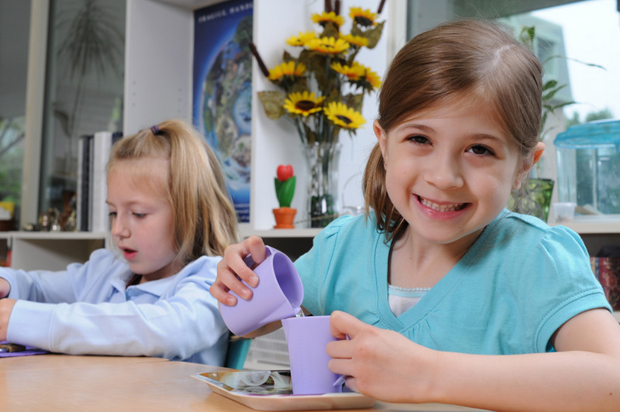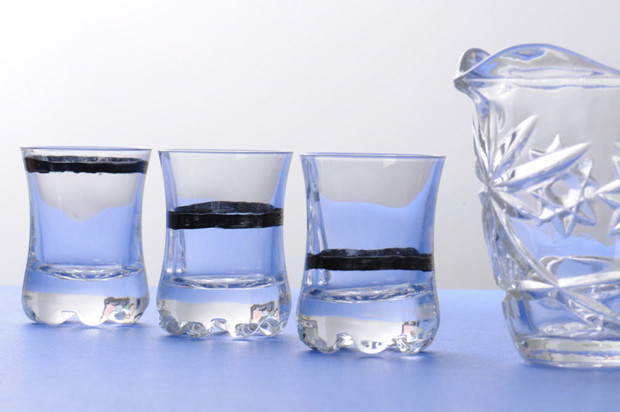Questions many parents ask about Montessori learning
Humbervale Montessori parents do their homework before choosing a first school for their children. If you are just beginning yours, these are answers to the most commonly asked questions about Montessori learning.
We are always happy to discuss what we do, so please connect with us directly with any specific questions you might have.
Why should I send my child to a Montessori School?
Educators and psychologists agree that intelligence undergoes important development between birth and age six. A child’s mind is extremely absorbent and curiosity is at a peak during these early years. When properly nourished and stimulated, the child forms healthy patterns for a lifetime of learning. The Montessori system has proved to be one of the most effective methods to guide a child through these critical years. A 2006 study published in the journal Science concluded that Montessori students (at ages 5 and 12) performed better than control students who went to a variety of different conventional schools. This improved performance was achieved in several areas, including language, math and social skills. The authors concluded that, “when strictly implemented, Montessori education fosters social and academic skills that are equal or superior to those fostered by a pool of other types of schools.”1 Research supplements this by showing superior math and science performance in high school by children who previously attended public Montessori as compared to high school classmates, over half of whom were at the most selective city public high schools.2 Two other studies showed a higher level of interest and motivation while doing schoolwork, as well as more positive social relations among Montessori middle-schoolers as opposed to matched controls.3

How is a Montessori program different from other preschool programs?
In most preschools and kindergartens, a teacher teaches the children educational concepts in a group. In Montessori, children learn by having individualized lessons and then by working independently with specially designed materials in a prepared environment. The children advance through the materials from the simple to the complex, building on what they have accomplished. There is a three-year age mix in each class, so the children can learn from one another and become active role models. The student-teacher ratio is lower than that of other preschools or kindergartens, allowing for more individualized learning.
Who started the Montessori Method?
Dr. Maria Montessori was not only the first woman physician to graduate from the University of Rome, but she was also a dedicated scientist and educator. She first became involved with education when she treated underprivileged children. From her observations and actual experiences with these children she developed specific materials and an approach to child education that won her world acclaim. Dr. Maria Montessori opened her first school, “Casa Dei Bambini”, (Children’s House), in Rome in 1907.

What is the Montessori Method of Education?
Montessori Education is an aid to life, calling forth that which is within the child. It gives the opportunity for the child’s intellectual, social and creative development. Maria Montessori felt that children have an “Absorbent Mind”. They are driven from within to effortlessly absorb everything from their environment. If free to learn, children will joyfully select activities that develop their abilities. Children do not need to be stimulated, as they are stimulated by the world around them. They have a passion to learn and should be the pivot of their own education. The prepared environment best fills this need to grow and learn.
The Montessori directress is the dynamic link between the children and the Montessori learning materials. She presents the exercises to the children and they, in turn, learn through their repetitive manipulation of those materials. As children begin to develop their inner-selves, their love for learning continuously expands. The Montessori Method is an “approach to learning” and as such, has no distinction of class or intelligence. It has been used successfully in all parts of the world.
How do Montessori children adjust to traditional schools?
Children that have been in a Montessori environment typically are very flexible and adjust quite easily to the public school situation. They are generally better students and spend their time in more productive ways because of their self-direction and positive attitude toward learning. Socialization is very much a part of the Montessori Method. In the classroom, children interact continuously, often choosing to work on projects together.
Find out what to expect in our classrooms, or contact us to schedule a tour of Humbervale Montessori School in Etobicoke.
1 Lillard A, Else-Quest N (September 2006). “The early years. Evaluating Montessori education”. Science 313 (5795): 1893–4
2 Dohrmann K R, Nishida T, Gartner A, Lipsky D, Grimm K (2007). “High school outcomes for students in a public Montessori program”. Journal of Research in Childhood Education 22: 205–17
3 Rathunde K, Csikszentmihalyi M (May 2005). “Middle School Students’ Motivation and Quality of Experience: A Comparison of Montessori and Traditional School Environments”. American Journal of Education 111 (3): 341–71)


